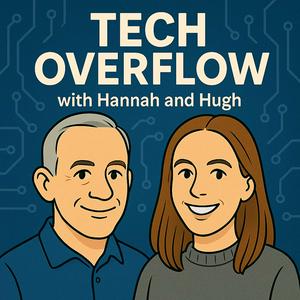AI, Without The Hype: ChatGPT and LLMs. Part #2
Send us a textFinally, a podcast that explains how AI, LLMs, and ChatGPT work without any hype, fluff, or hyperbole. This episode is aimed at smart people who aren’t in tech and just want to be able to understand the basics. Join host Hannah Clayton-Langton as she discusses the topic with former Google VP and OG AI expert, Hugh Williams.We start by separating AI, machine learning, and LLMs, then explain why generative systems are not search. Instead of retrieving pages, an LLM synthesises new text using patterns learned from trillions of tokens. That leap was unlocked by transformers, the architecture that parallelises processing and models relationships between words through attention. Add weeks of GPU-heavy training in massive data centres and you get astonishing next-word prediction with long-range context.Then comes the human layer. We talk through reinforcement from human feedback that nudges models toward helpful, safe behaviour, and the safety heuristics that block harmful queries or intercept trivial ones. We also get candid about limits: hallucinations that produce confident nonsense, bias from data and raters, weak arithmetic unless the system calls an external tool, and uneven image generation that’s improving fast. Along the way we share practical tips: how to compare outputs across models, when to fact-check with a second system, and why grounding responses in reliable sources matters.If you’ve heard about trillion-token training runs, NVIDIA GPUs, and “stochastic parrots” but want a clear, human explanation, this one’s for you. You’ll learn how LLMs actually work, why they feel so capable, and how to use them at work like a fast intern whose drafts still need your judgement. Enjoy the deep dive, and if it helps you explain AI to a friend, subscribe, leave a review, and share your favourite takeaway with us.Like, Subscribe, and Follow the Tech Overflow Podcast by visiting this link: https://linktr.ee/Techoverflowpodcast


